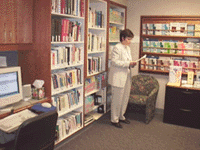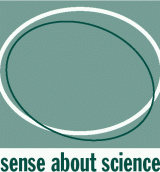A lot of people have posted comments or emailed me about their studies.
You guys ask "I am applying to clinicals next semester, what should I do?"
or "I'm about to take class X, is it hard?"
or "How did you know this was what you wanted to do?"
etc...
Well, I've been thinking about what I've learned over the last year and I think it's time I gave you some insider information. Here's a few things I've learned that may or may not help you out in school.
1) If you are thinking about going to nursing school but aren't there yet,
volunteer at the hospital. I'm serious, it's not just for old ladies and community organizations. I was privileged enough to volunteer for a couple semesters at Hermann Memorial Hospital in downtown Houston. The place was massive and they had everything imaginable over ten floors in several buildings. I got to wander around all over the place and meet doctors and nurses and therapists of every kind. I got to see what the job was really like. It focused my goals.
Another solution would be to get a part time or summer job working in a hospital, though these are sometimes harder to come by. I have several friends who work as unit clerks or pharmacy techs... good jobs but not nursing jobs. I'm applying for a student nurse tech position for the summer... but I wasn't even eligible for it until I completed 2 semesters of clinicals. For students, hospital jobs can serve to ease your transition into the working world (if you can handle the extra stress). But they might not be the best way to feel out nursing as a potential major.
In any case, you can't really know if you want to do it without spending time in the hospital.
2) Go ahead and
buy an NCLEX review book at the beginning of clinicals. Look on Amazon and try to find the one with the highest rating, especially one that has questions sorted out by topic with rationales for the answers. (Also, some instructors pull questions from review books... but that's not why I'm mentioning it.)
The thing about the NCLEX is that it asks you questions based on your ability and adapts to your level. The passing questions are based on synthesis and critical thinking, not recognition and recall. Sure, if you keep answering questions incorrectly the computer will eventually start asking you where the liver is. But you have to answer a minimum number of
difficult questions to pass. You can answer every single anatomy question correctly from here to infinity and never meet the minimum requirements.
If you are attending a good nursing school, your instructors will try to format their test questions similarly to the passing NCLEX questions. They won't ask "What is this disease" as much as they will ask "What is the priority thing you need to watch when a person has this disease?" They won't ask "What does this medicine treat?" so much as they will ask "What lab value do you need to monitor when these two medicines are combined?" This principle should hold true for any course, so when you study you should try to think on a higher level than simple fact regurgitation. A review book might help you anticipate the kinds of questions your teacher will ask. Even if you never see the exact questions on your tests... you'll be more prepared for boards upon graduation.
3)
Don't study for the grades. I know it sounds ridiculous, but your goal in studying shouldn't be to make A's. Studying isn't a product-oriented activity. It is process-oriented.
What good is school if you only cram enough facts in your head to pass a test? What good is your education if you stay up all night before each exam trying to store just enough info in short term memory to bump your grade up a letter? That kind of behavior was okay for English and Psychology... those things aren't your major. But nursing is something you'll have to do every day for work, and your mistakes won't take the form of typos. They'll take the form of injuries and deaths.
I know it isn't easy to do; we're all busy people. But if you make it your habit to reread the week's notes every day... if you make it your habit to learn and retain a little information each time... you'll gain more than class credit. You'll gain competency. Powerpoint is destroying our ability to take notes and listen actively. Printing out the slide handouts isn't enough.
Okay, so some of school is silly and useless. Something you have to get through before you go out into the real world and learn how things are done. Still, constant efforts really will carry you farther in life than intelligence alone. It becomes a matter of discipline and will.
4)
Take time to play. But don't do it all the time. Some days you're just going to have to work hard from sun up to sundown. Just remember to relax on weekends.
Take time to exercise. That freshman fifteen wasn't your birth control. It was your metabolism slowing down. Even if you only go for a walk on the weekend, it's better than nothing.
Don't drink too much. Try to get off the caffeine and cigarettes. You're going to be a nurse; set a good example. The immediate gratification will cost more in the long run.
~~~
That's enough for now. More tips as I learn them.
One more thing: do you have a nursing/health blog or website? I know a lot of you read me but I haven't gotten around to reading linking you. Just post a comment with your URL, I'll check out your site and add you if I like what you have to say.



